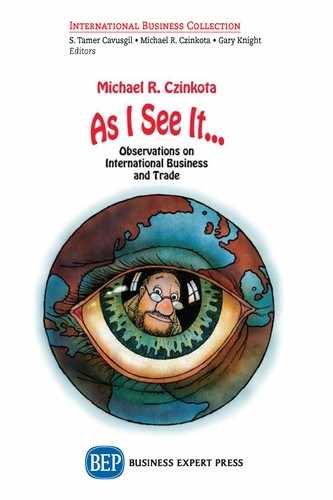Shame Factor Can Curb Bad Behavior in Firms and Individuals (with Shou Zhang)
South China Morning Post, August 2015

As a researcher in international marketing issues at Georgetown University in Washington, DC, I am interested in the crackdown on indoor smoking implemented by the Beijing authorities.
Beijing has, for decades, been infamous for its heavy smog. Yet, outdoor air quality is not the only worry. Also of concern, but relatively more difficult for the government to monitor and control, is indoor air pollution, which is mainly caused by smoking.
To reduce the secondhand smoking risk, a new law came into effect on June 1. Anyone breaking these new regulations and policies will now face fines ranging from 200 Yuan (HK$250) for individuals to 10,000 Yuan for restaurants. Not only hitting with fines, repeat offenders will see their names posted on a government website for one month, alongside a list of their offences. A core dimension of the new law is public shaming. Witnesses to infractions are urged to notify the government. Social pressure can be exercised through shaming and is expected to make the new law more effective.
Shame could be used to get the attention of some “bad apples” causing headaches for the rest of us—especially when it comes to major collective action problems like climate change. It is just a matter of being creative and focused about choosing our targets.
Companies, such as British Petroleum or SeaWorld, do not experience guilt. However, the people working in these corporations do. Their thoughts and behavior can be influenced by public disapproval. Public opinion can be most essential for companies, especially if they are producing certain “brands,” such as Apple with its iPhone. Reputational risks are a primary concern and public shaming is most effective if targeted at those corporations.
One must ponder the question: can "shame" really work in implementing government policy? Jennifer Jacquet, author of “Is Shame Necessary?”, claims success for a website run by the state of California that lists the names of people who have not paid their taxes. The site targets only the top 500 delinquents, and the state has retrieved more than US$395 million in back taxes since it was launched in 2007.
Republican presidential candidate Jeb Bush advocates the use of shame as a tool, and says it should be used to reduce out-of-wedlock pregnancies. He believes that since people do not feel ashamed of single parenting, it has become OK for young women to give birth out of wedlock and young fathers to walk away from their paternal obligations.
Another possible and very helpful area for “shame policy” is immunization of a country’s population. A society needs something like 90 percent of people getting vaccines for there to be true immunity. This obviously makes it easy for people to “free-ride” and opt out, since all the people around them are taking the needle for them. However, as soon as the state makes it easy for people to opt out, society gets down to 86 percent compliance and an immunization does not work anymore. That is why society needs regulation or some sort of shaming to reach that threshold, in order to make sure everyone safe.
Another example is the Rainforest Action Network and its shaming campaign against banks which were financially supporting coal companies doing mountain-top removal in the Appalachia region. After a five-year campaign, two of the nine banks have changed their policy to prevent the funding of coal companies. I’m not saying that this two out of nine is a major success, or even sufficient—hopefully someday this will be illegal. But it shows that shaming can act as a stop-gap for the period between when people are outraged about something and when there is actual legislation passed to stop it. These examples show how shame can be used to prevent certain behaviors in business and society.
Working to avoid shame can lead to better weights and measurements, a concern to avoid being ridiculed by competitors and losing one’s long-developed reputation. Avoiding shame by reducing, eliminating, and making up for past mistakes can strengthen a company’s unique selling proposition and let it emerge as a seasoned competitor.
Particularly in fields such as marketing, where the brand and personal perceptions are paramount, shaming can become a major influence if not the rationale for the curative approach leading to a healing of relationships between business, government, and consumers.
